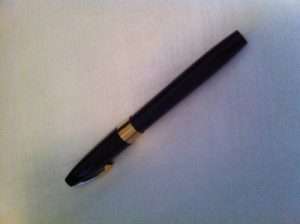Today’s Heaney Daily Twitter post is a line from Seamus Heaney’s 2009 lecture, “Writer and Righter.” Speaking at the fourth annual lecture of the Irish Human Rights Commission, Heaney declared:
You cannot sit idly by and let the rights of others be eroded or abused. It is in this way that writers both inspire righters, and are righters themselves.
Heaney quoted the work of Polish poet Czesław Miłosz who wrote:
What is poetry that does not save
Nations or peoples?
A connivance with official lies.
The song of drunkards whose throats are about to be cut.
Seamus Heaney takes a rather more exalted view of the role of writers than the record of some would merit. In the Great War, there were those like the poets of the Great War, Brooke and Thomas and Owen; in the Second World War, there were those like Antoine de Saint-Exupéry, writer of Le Petit Prince, the world’s most translated non-religious text; writers who died in combat. However, the suggestion writers are necessarily righters does not bear scrutiny, sometimes writers assumed a low profile, if not conniving with what Milosz called “official lies,” then not doing a great deal to challenge those lies.
Jean-Paul Sartre, the best-known, if not the greatest, philosopher of the Twentieth Century, passed most of the Second World War peaceably in Paris. Conscripted in 1939, he was captured in 1940 and spent nine months as a prisoner of war. Leaving the camp in 1941, he was given civilian status and was granted a teaching post in Paris. Sartre was instrumental in forming an underground group Socialisme et Liberté, suggesting that it assassinate French collaborators with the Nazi forces of occupation. The idea was not embraced by the group, Sartre’s partner Simone de Beauvoir saying, “none of us felt qualified to make bombs or hurl grenades.” Perhaps they were ill-equipped, but a lack of aptitude did not prevent the neutral Irishman Samuel Beckett offering service to the French resistance, to the extent he was awarded the Croix de guerre and the Médaille de la Résistance after the war.
Writing and righting are like circles of a Venn diagram. Where the circles overlap, there may be found people who engage in both, but there are writers who are not righters, just as there are righters who are not writers. Writers not righting are criticised by Heaney, condemned by Milosz, and contemplated by Bruce Springsteen in Jungleland:
And the poets down here don’t write nothing at all
they just stand back and let it all be
and in the quick of a knife, they reach for their moment
and try to make an honest stand
but they wind up wounded, not even dead
tonight in Jungleland.
There is frustration at those who might say something but do nothing, anger at those who could articulate the feelings of the alienated, at those who could try to connect the powerless with the powerful, at those whose words might have the potential to change the reality of people whose lives are otherwise trapped in violent desperation, but retain a detached indifference, until it is too late to change anything.
“The song of drunkards whose throats are about to be cut,” there are not a few whose attitudes Milosz might have described.
